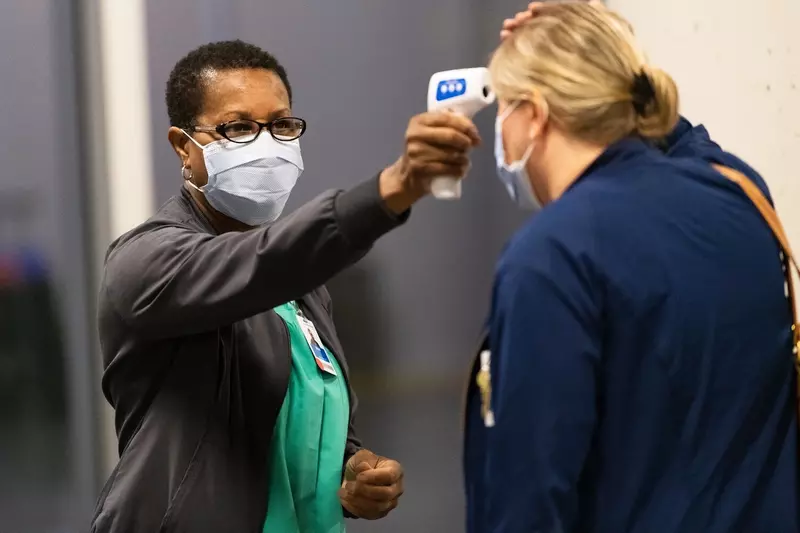- AdventHealth

Nothing is more important to us than your health and safety. That’s why we’re employing special protection measures as we reopen our facilities.
One of those new measures is checking the temperature of everyone coming into our facilities. We are also checking the temperature of our health care team members and physicians daily.
Understanding How a Fever Is a Healthy Immune Response
A fever is a body temperature that is higher than usual. An average body temperature is about 98.6º F (37º C). It varies a little bit between people and may fluctuate throughout the day, starting at a lower point in the early morning and peaking around suppertime.
The Centers for Disease Control and Prevention (CDC) defines a fever as 100.4º F (38º C) or higher. A fever is a common part of your body’s healthy immune response, according to the National Institutes of Health. Your body is turning up the temperature to rally your immune system to respond.
Temperature Checks at All Facility Entrances
A temperature check is easy and only takes a few moments. It helps us identify people who may have an infection and make sure we can keep other visitors safe by caring for those who may be sick in a separate area.
Health care team members may use different types of thermometers to take your temperature. An infrared electronic thermometer is one type of thermometer that may be used. It is a handheld device that will calculate your temperature using infrared light. A health care team member will use the device to scan your forehead without touching you.
Another type of thermometer is a digital electronic thermometer. A probe reader rests under your tongue until it beeps. Rest assured that we provide new, single-use covers for the probe, which we discard after every use. We also disinfect the thermometer each time to make sure there’s no chance for germs to spread between people.
Daily Temperature Checks for All Health Care Staff
We are also checking the temperature of all health care providers and staff daily. That means you can be confident that anyone providing you with care is not putting you at risk for infection and that we’re doing everything we can to keep them safe, too.
What to Do if You Have a Fever but Still Need Care
If you have a fever or other signs of illness, call us first to schedule an appointment and find out which entrance to use at our facilities. At some locations, we may ask you to wait in your car until you receive a text message that it’s your turn to come into the building.
We’re Ready When You Are
If you have been putting off in-person health care appointments, we certainly understand. Temperature checks are just one way we’re taking steps to keep you safe. When you’re ready to come in, please know that we’re prepared to keep you safe as we provide you with excellent care.
To increase your options, we have expanded our telehealth services to include being seen by your provider in the comfort of your own home. If you have questions about your health, schedule a telemedicine call to touch base with your physician. They will take your health history and needs into account and help you determine if an in-person visit is needed. To learn more about how we’re keeping you safe, visit AdventHealth.com.


